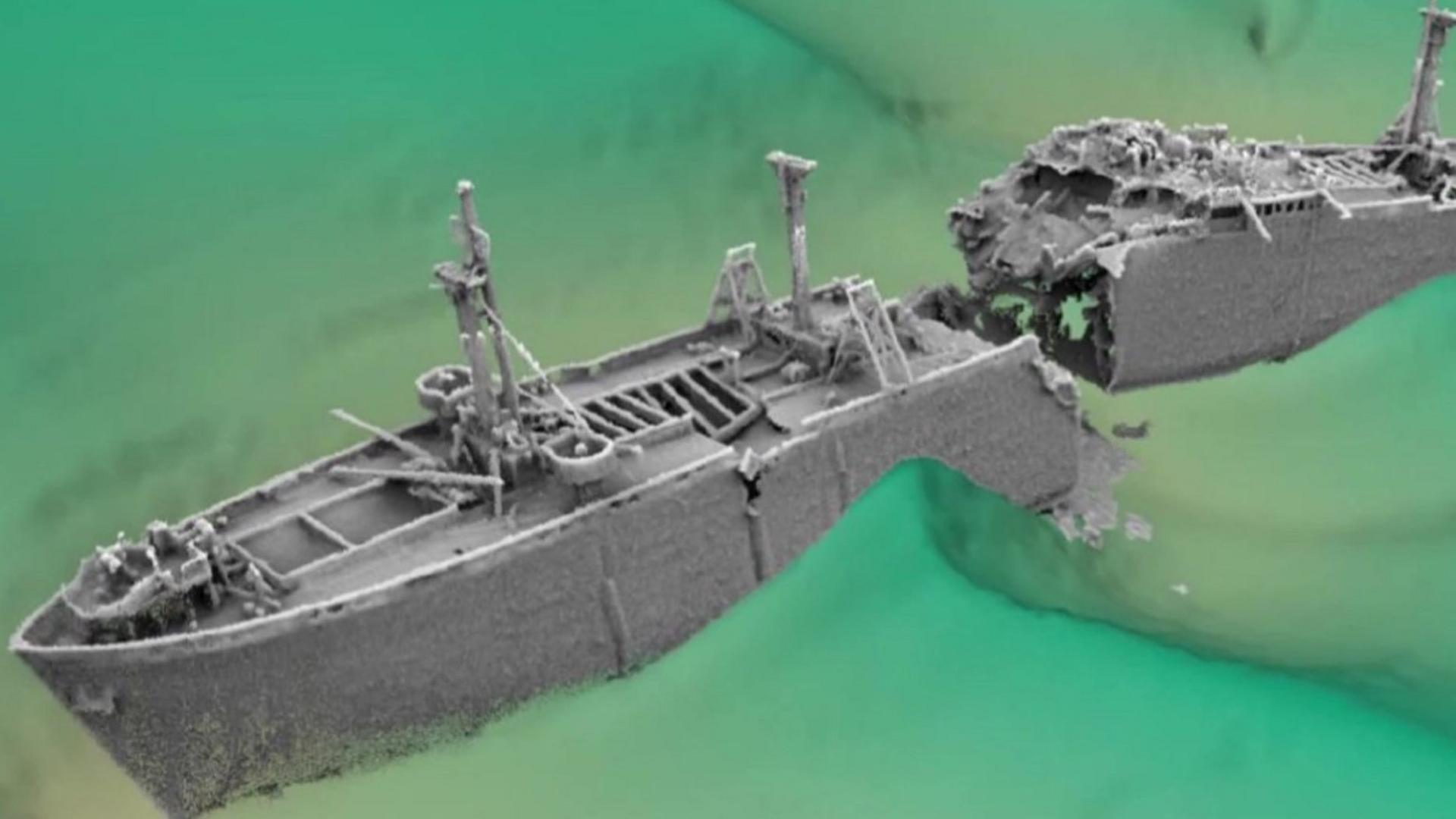Shipwreck off Alderney identified as steamship Virago
- Published
The ship was taking machinery from England to Russia when it was lost in the Channel.
A wreck two miles off Alderney in the Channel Islands has been identified as a ship that disappeared 140 years ago.
The SS Virago was sailing from Hull to the port of Odessa, then part of the Russian Empire, but never made it out of the English Channel.
Divers discovered 1,000 tonnes of metal work including steam engines, wheels, ironworks, and other machinery.
The wreck was hard to access due to Alderney's strong tidal range but was identified after a dive this summer.
Dive supervisor Richard Keen said: "I've been diving commercially for 55 years... this is a once in a lifetime discovery."
He said: "The wreck lies in 45 metres of water, It's probably in the most tidal area in the UK, when I say there was seven knots of tide, there's probably more than seven knots of tide.
"When the divers dive it, they've got a maximum of a 20-minute window on a neap tide and it's a very tricky place to dive."
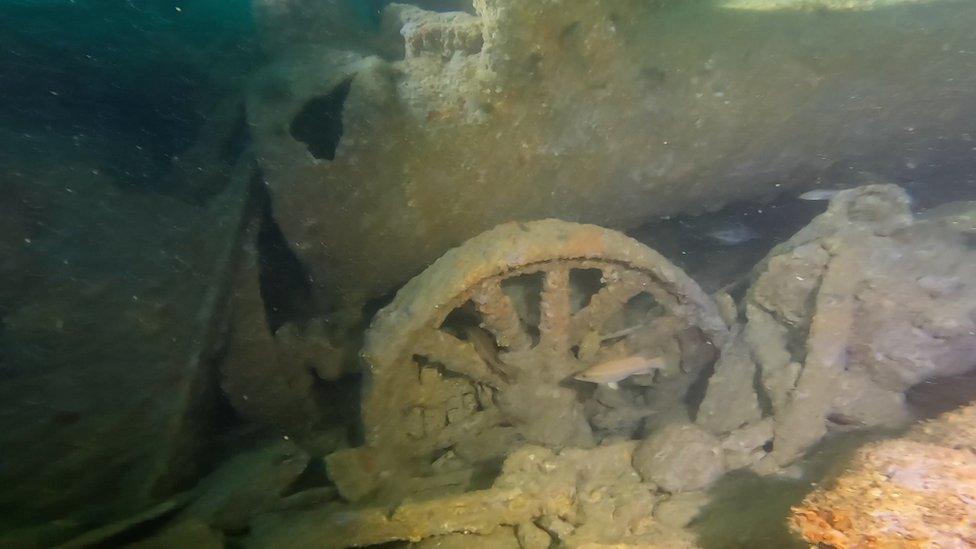
The owners of the ship were among those who supported moves to improve steamship safety
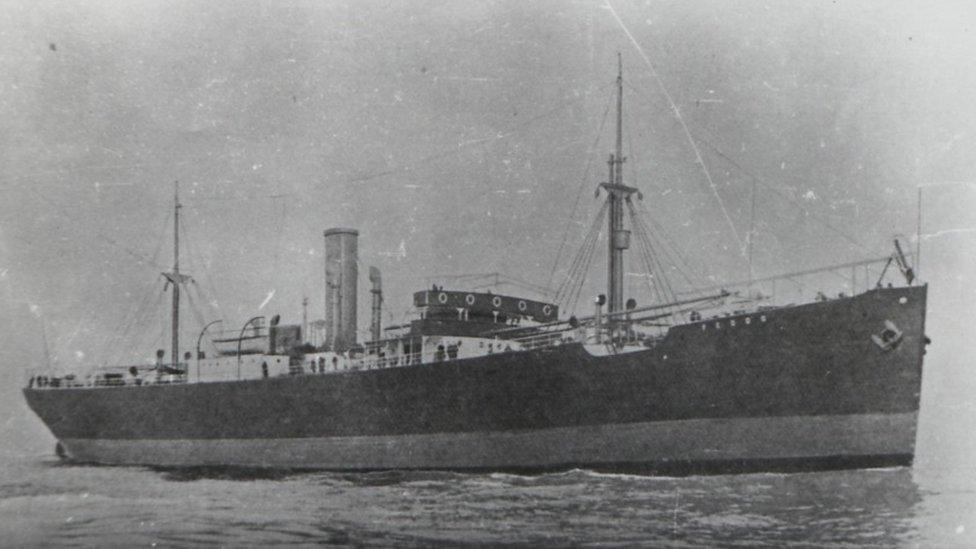
The Yeddo was a sister ship to the Virago in the Wilson Line that was the largest privately owned steamship fleet in the world
The Virago is still listed as missing on Lloyd's Register of Ships - a marine classification society - which said the vessel was built in Hull in 1871.
It was 282ft (86m) in length, 34ft 8in (10.5m) in breadth and 19ft (5.8m) in depth with a gross tonnage of 1,809 and belonged to the Wilson family business.
Mr Keen said of the tragic sinking in June 1882: "Nobody survived, there were 26 crew, one body was washed ashore near Cherbourg sometime later and four of the lifeboats were found, two off Dieppe and two north of Alderney.
"We know there was fog on that day or that night, we have yet to calculate actually what her speed, course and what time that she probably struck Alderney or a reef off Alderney."
Dr Robb Robinson, from the University of Hull, said: "In the 19th Century the loss of ships was greeted in much the same way as car crashes would be reported today.
"The carnage among shipping was very high, we didn't have the sophistication that we've got today in terms of navigation, in terms of ship construction, so the losses did occur on an all too regular basis."
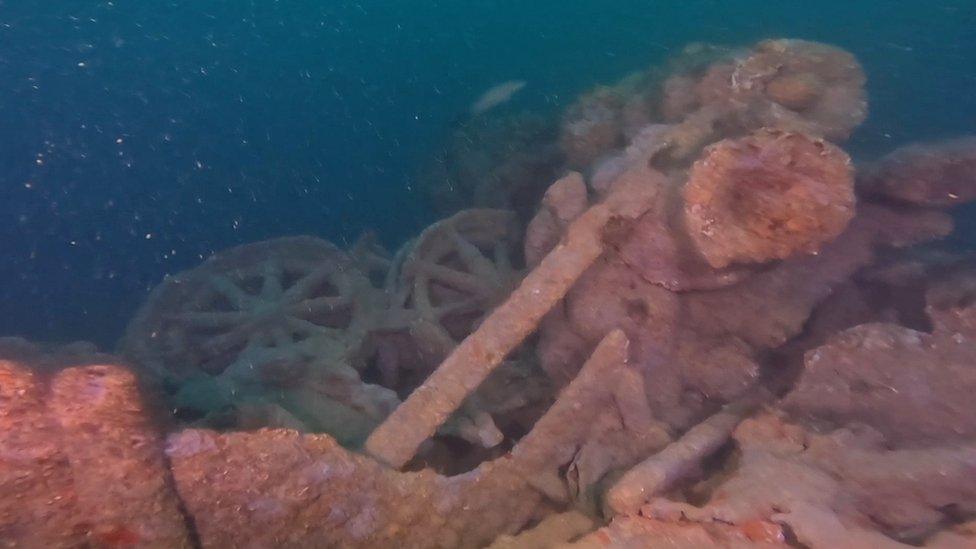
The Wilson Line, which owned the Virago, carried a lot of migrants to the United States of America
He said: "One of the things that the Wilson Line was particularly famous for was for taking people from Eastern Europe, bringing them to England and shipping them across on ports such as Hull and Newcastle to Liverpool and then onwards as chance migrators across to the United States [of America]."
Dr Robinson said: "Steamships like this played their part in cementing the British Empire. The Virago had been used initially quite considerably to trade with the Far East from the UK.
"The Suez Canal had been recently opened, links to India were strengthened as a result of being able to cut sailing round South Africa out of the voyage and being able to make direct voyages to India."
The wreck was discovered in 2009 during a seabed survey for a potential tidal technology but was not identified at the time.
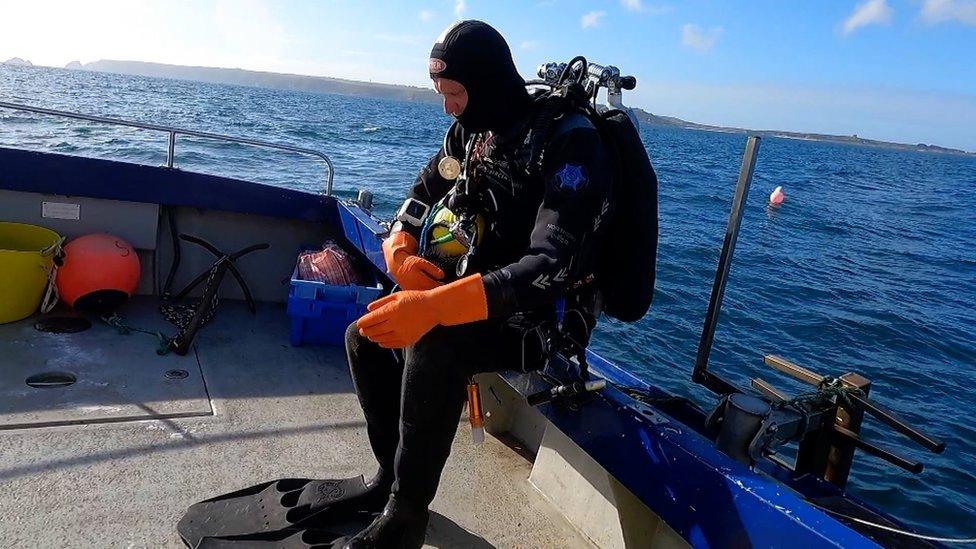
Richard Keen said more wrecks were waiting to be found and identified in the English Channel
Mr Keen, who has discovered a number of wrecks in Channel Island waters including the Gallo-Roman ship dubbed the Asterix, said of the Virago: "I haven't dived it yet, but just looking at the video, it's a most interesting wreck.
"I'm just waiting to dive it. I'd never believe that a wreck like that would exist in that area and be there 140 years and nobody had really found it or looked at it.
"We've yet to explore the whole of the wreck."
He said: "There's always more shipwrecks to be discovered.
"I'm sort of fairly famous for finding Roman shipwrecks rather than steel shipwrecks, but yes, I mean, we know there's probably two Second World War wrecks in the [Alderney] Race, which nobody has found, but basically we normally rely on fisherman who snag their gear to tell us where the wrecks are."

Follow BBC Guernsey on Twitter, external and Facebook, external. Send your story ideas to channel.islands@bbc.co.uk, external.
Related topics
- Published18 August 2022
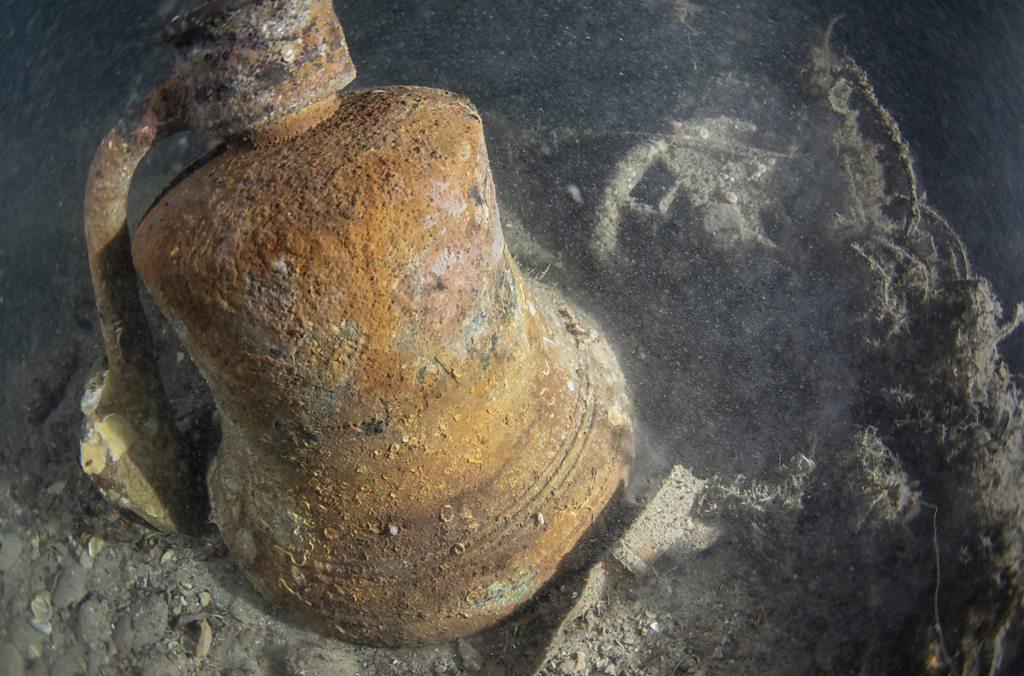
- Published20 July 2022
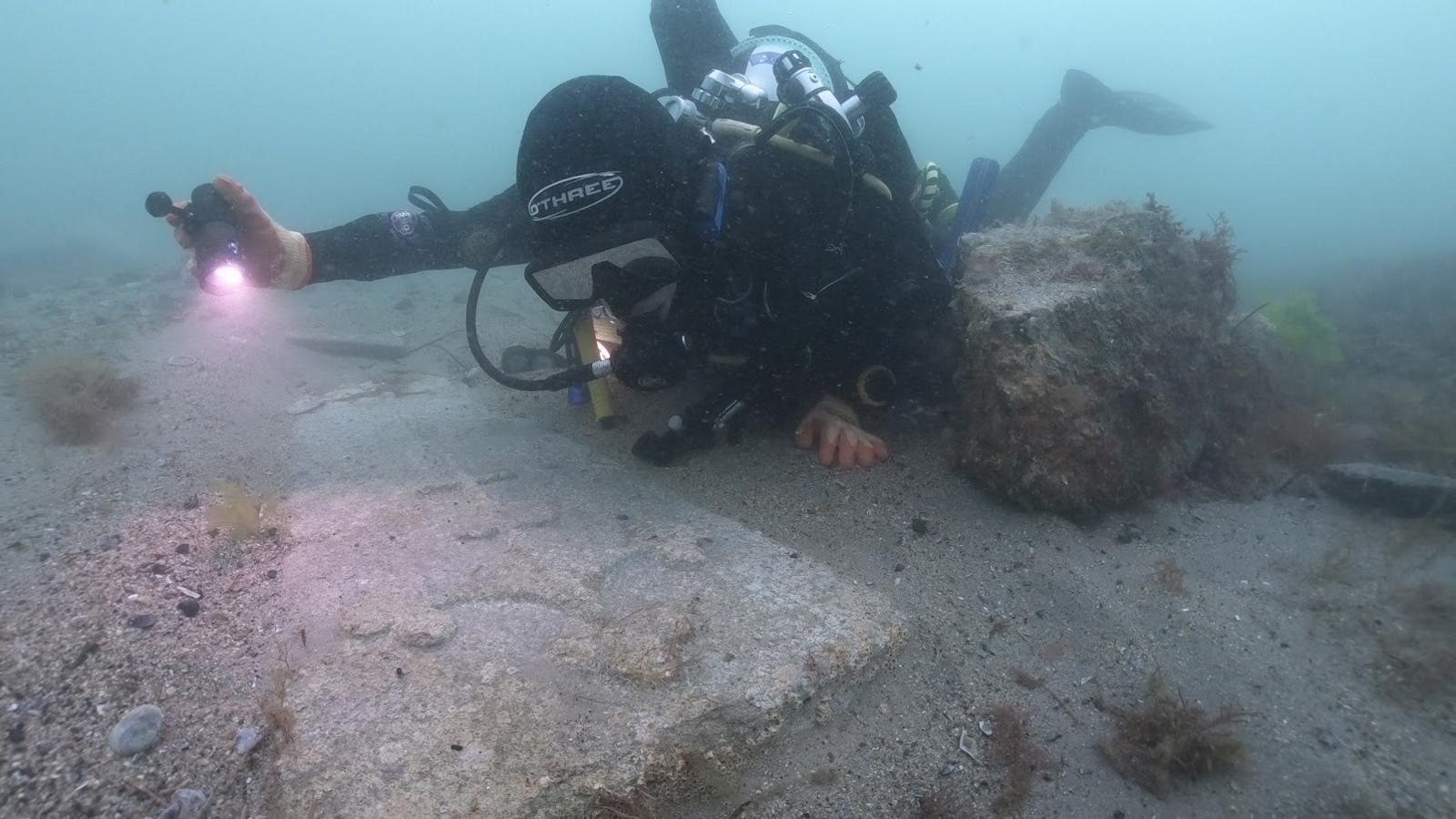
- Published13 July 2022
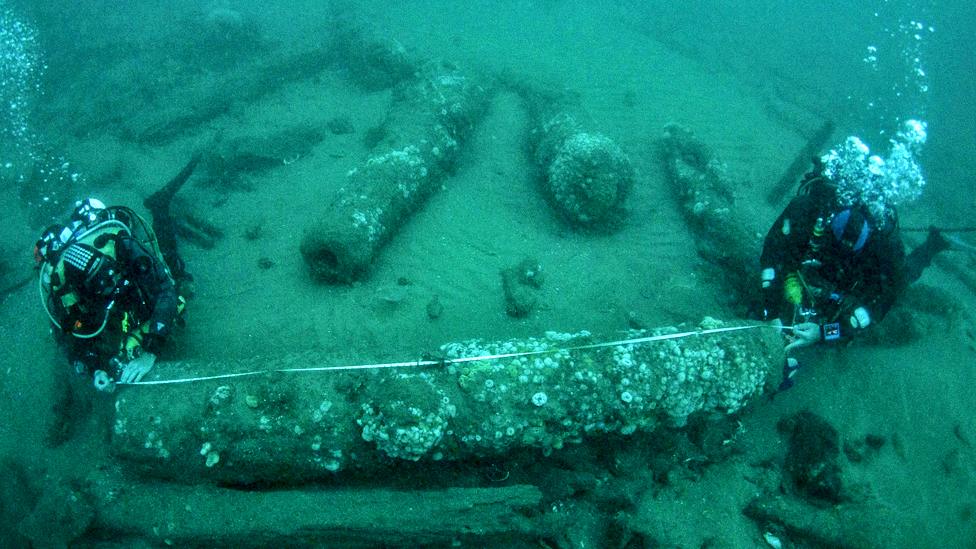
- Published24 June 2022
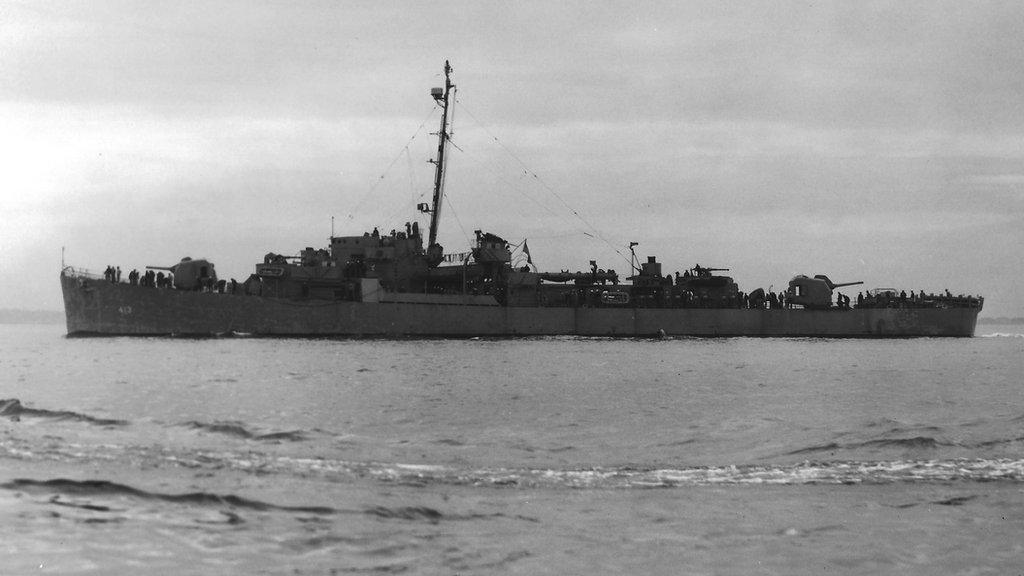
- Published9 May 2022
